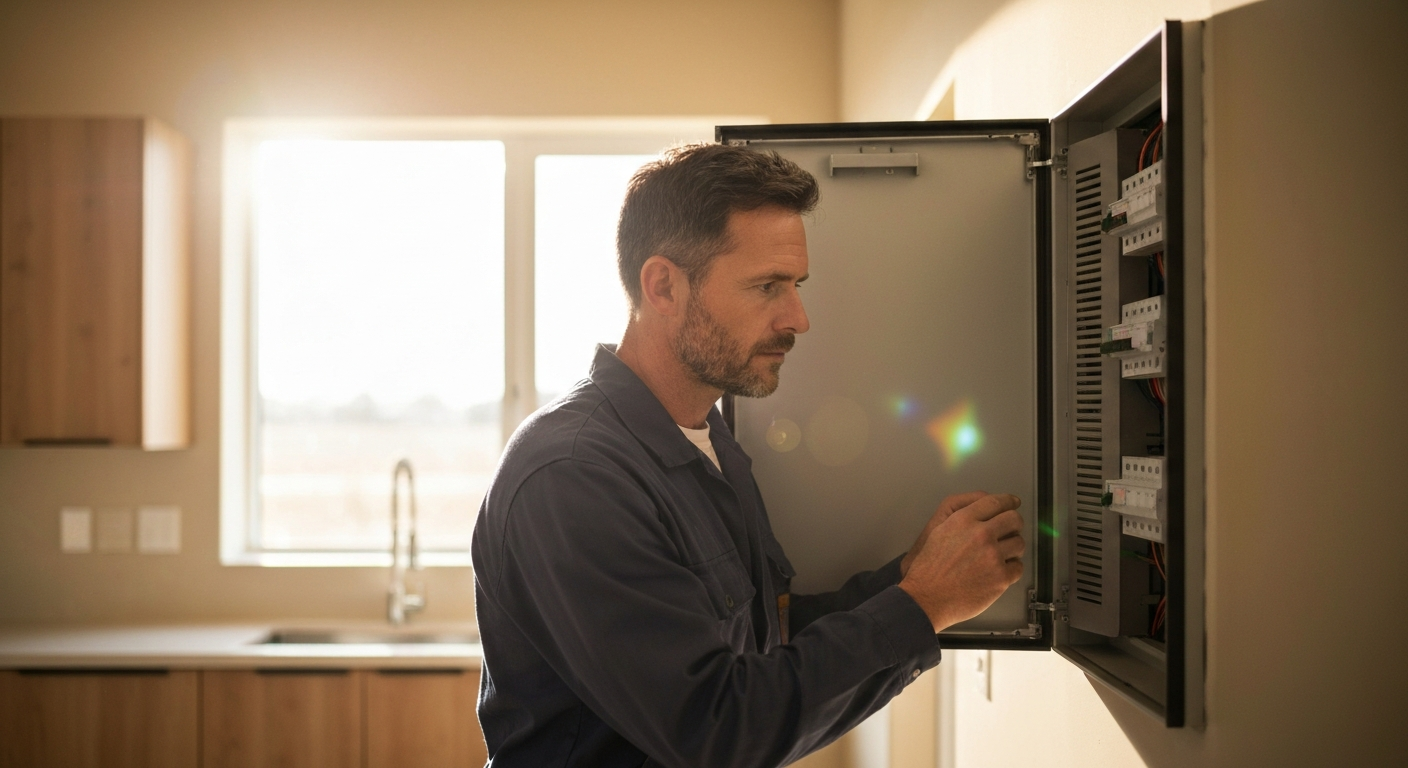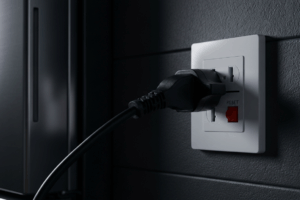
AFCI & GFCI Rules in Arkansas: Navigating the Adopted 2020 NEC
AFCI & GFCI Rules in Arkansas: Navigating the Adopted 2020 NEC
The Big Shift: Arkansas’s Adoption of the 2020 NEC
As of August 1, 2022, Arkansas officially operates under the 2020 NEC. This move aligns the state with more current electrical safety standards, but it’s not a simple copy-and-paste adoption. The state has issued specific Arkansas 2020 NEC amendments that directly impact daily work on job sites from Fayetteville to Jonesboro. These Arkansas electrical code updates create a unique compliance landscape that can trip up even experienced electricians who rely on the standard NEC code book alone. Understanding these nuances is critical for maintaining your license and reputation, as they affect everything from new builds and major renovations to a straightforward panel upgrade compliance project.
AFCI in Arkansas: The Surprising Kitchen and Laundry Exemption
Nationally, one of the biggest stories in recent code cycles has been the expansion of Arc-Fault Circuit Interrupter (AFCI) protection. NEC 210.12 in the 2020 edition requires an arc fault breaker or other approved AFCI device on nearly all 120-volt, 15- and 20-amp dwelling unit branch circuits, including those in bedrooms, living rooms, hallways, and, notably, kitchens and laundry areas. The purpose of an arc detector breaker is to prevent fires by sensing hazardous arcing conditions that a standard breaker wouldn’t catch.
However, this is where Arkansas diverges significantly. According to the official Administrative Rules of the Arkansas Board of Electrical Examiners, a specific amendment carves out two major locations. Rule 010.13-008 B.1 states: “Notwithstanding the provisions of the 2020 National Electrical Code, arc fault circuit interrupters shall not be required in kitchens and laundry rooms.” This is the most critical kitchen and laundry AFCI exemption that every electrician in Arkansas must know.
What this means for your work is clear: you are not required to install AFCI protection on branch circuits serving outlets and devices in kitchens and laundry areas. This can be a point of confusion for those accustomed to the full national code and can affect job bidding and hardware selection. While this rule is in place, AFCI protection is still mandatory for all other specified areas in 2020 NEC dwelling units. If you are troubleshooting circuits in those other rooms, understanding why AFCI breakers trip remains a vital skill.
GFCI Requirements: What the 2020 NEC Expansion Means for You
While the state provided an exemption for AFCI, it largely adopted the significant expansion of Ground-Fault Circuit Interrupter (GFCI) protection found in NEC 210.8 Arkansas. The biggest change in the 2020 NEC is the broadened scope of GFCI rules. Previously, the focus was on 125-volt, 15- and 20-amp receptacles. Now, the code requires GFCI protection for all 125-volt through 250-volt receptacles supplied by single-phase branch circuits rated 150 volts or less to ground in the locations listed in 210.8(A).
This change has major implications for common household appliances. For example, a 240-volt clothes dryer receptacle in a basement or laundry area now requires a GFCI breaker or other means of protection. The same applies to a range or other 250V appliance if its receptacle is located in a basement or within 6 feet of a sink. It’s a critical update that makes understanding proper wiring essential; reviewing common GFCI miswires and how to fix them can save you headaches during an inspection.
Arkansas did make one amendment to GFCI rules, excluding the requirement for outdoor HVAC equipment as detailed in NEC 210.8(F). In many other situations, particularly where kitchens and bathrooms require both types of protection, using combination AFCI/GFCI devices can be an efficient solution. As codes evolve, it’s also wise to stay informed about future trends, like the key changes in the 2023 NEC, to anticipate what’s next.
Practical Compliance and Avoiding Failed Inspections
Knowing the rules is only half the battle; applying them correctly is what keeps your projects on schedule and profitable. For electricians working on older homes, NEC 210.12(D) is particularly important. When you modify or extend an existing branch circuit in a location that now requires AFCI protection, you must add it as part of the job. This often comes into play during a panel upgrade compliance project, turning a simple swap into a more complex—and necessary—safety upgrade.
Ultimately, mastering the Arkansas AFCI GFCI requirements is non-negotiable for professional electricians. It demonstrates your expertise and commitment to safety, ensuring you pass inspections the first time. Keeping up with these specific licensed electrician requirements Arkansas demands is a career-long commitment. Stay ahead of the curve and ensure your work always meets the standard by exploring state-approved continuing education. To get a broader perspective on ground-fault protection, learning where the 2023 NEC requires GFCI in non-dwellings can provide valuable context for both commercial and residential work.
Don’t let code changes catch you by surprise. Stay informed, stay compliant, and continue to be the expert your clients rely on. Ready to sharpen your knowledge on the latest code updates? Browse our courses to find state-approved electrical continuing education designed to keep you at the top of your field.
Frequently Asked Questions
- Does Arkansas require AFCI breakers in kitchens for new homes?No. Arkansas has a specific amendment to the 2020 NEC that exempts kitchens and laundry rooms from the AFCI protection requirements found in NEC 210.12. This applies to all dwelling unit branch circuits in those two areas only.
- What is the biggest GFCI change in the Arkansas 2020 NEC?The most significant change is the expansion of GFCI protection to cover all 125-volt through 250-volt receptacles in specified locations, not just 15- and 20-amp outlets. This means larger appliances like electric dryers or ranges may now need a GFCI outlet or breaker if they are in a location like a basement or within 6 feet of a sink.
- Where can I find the official Arkansas electrical code amendments?The official rules and amendments are maintained by the Arkansas Board of Electrical Examiners, which is part of the Arkansas Department of Labor and Licensing. Their official website is the primary source for state-specific electrical regulations.
Arkansas Continuing Education Courses
Explore our board-approved continuing education courses for Arkansas professionals:
View CE RequirementsArkansas 2023 NEC Changes (8 Hours)
Disclaimer: The information provided in this educational content has been prepared with care to reflect current regulatory requirements for continuing education. However, licensing rules and regulations can vary by state and are subject to change. While we strive for accuracy, ExpertCE cannot guarantee that all details are complete or up to date at the time of reading. For the most current and authoritative information, always refer directly to your state’s official licensing board or regulatory agency.
NEC®, NFPA 70E®, NFPA 70®, and National Electrical Code® are registered trademarks of the National Fire Protection Association® (NFPA®)




